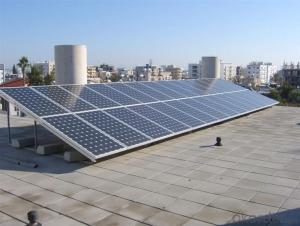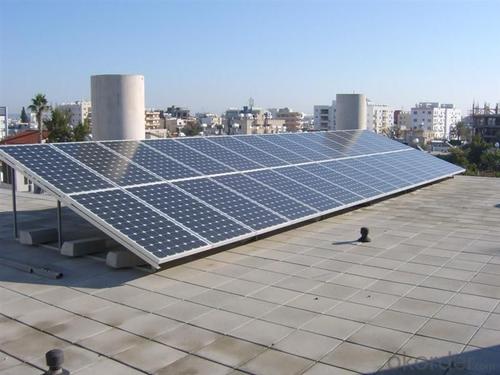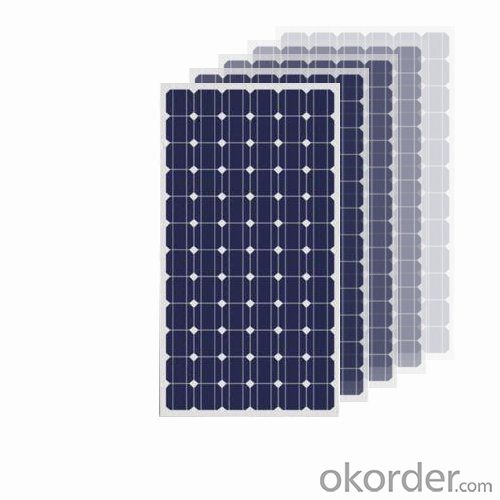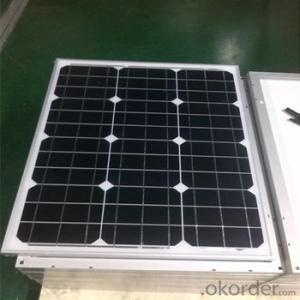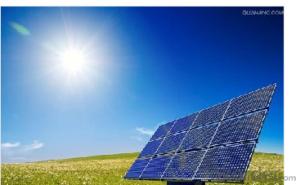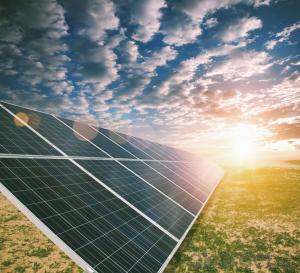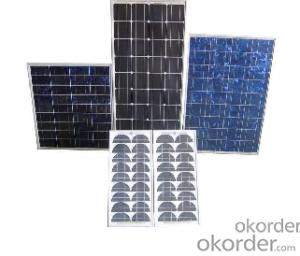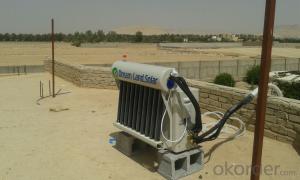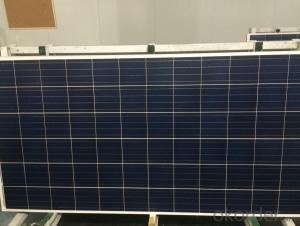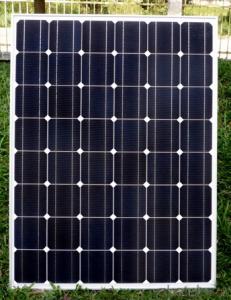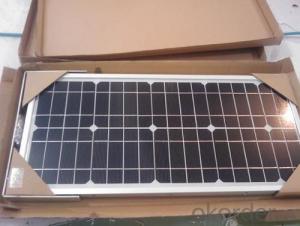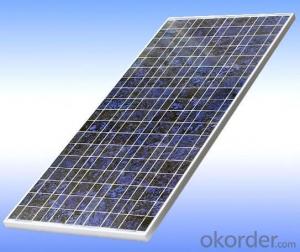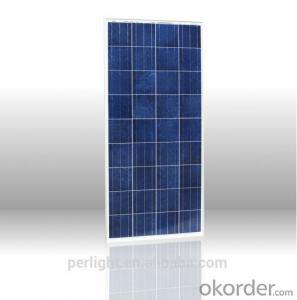CE and TUV Approved 200W Tile Solar Panels
- Loading Port:
- Shanghai
- Payment Terms:
- TT OR LC
- Min Order Qty:
- 10000 watt
- Supply Capability:
- 1000000 watt/month
OKorder Service Pledge
OKorder Financial Service
You Might Also Like
Specification
1. Detailed Introduction for Mono solar panel
Type | CNBM Solar Monocrystalline Series |
Materials | Silicon |
Guarantee | 12 yrs free from defects in materials and workmanship No less than 90% within 10yrs and no less than 80% within 25yrs TUV(IEC61215&IEC61730), CE, UL |
Application | Photovoltaic/ solar/ green energy/ energy saving |
Descriptions | 1.High efficiency crystalline silicon solar cell. Even if under the weak light, the solar module can produce maximum power output. 2.Tempered glass (toughened glass): Anti-reflecting coating and high transmission rate glass increase the power output and mechanical strength of solar module. 3. EVA and TPT: Using high quality EVA and TPT to prevent destroying and water. 4. AI frame: Without screw, rner connection. 6 holes on the frame can be installed easily. 5. Junction box: Multi function junction box with water proof. 6. Long lifetime: ≥25 years; Less power decrease. 7. Good performance of preventing from atrocious weather such as wind and hails. 8. Resisting moisture and etching effectively, not effected by geology. 9. The certificate issued by international authority: UL, TUV, IEC, CE.
|
Packaging Details: | 26pcs/pallet, 28pallets/ 40HQ Our solar panels are packed in cartons, and then pallet. Shipping by sea or by air are both ok, it up to customer’s chose. We’d like to inquiry the freight cost for customer after be informed exact quantity and destination address. |
2. Technology
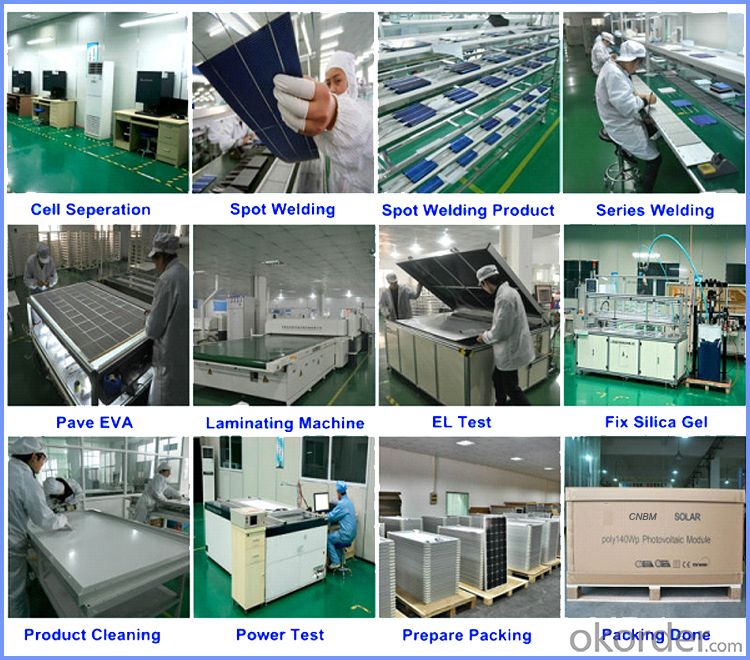
3. Use For
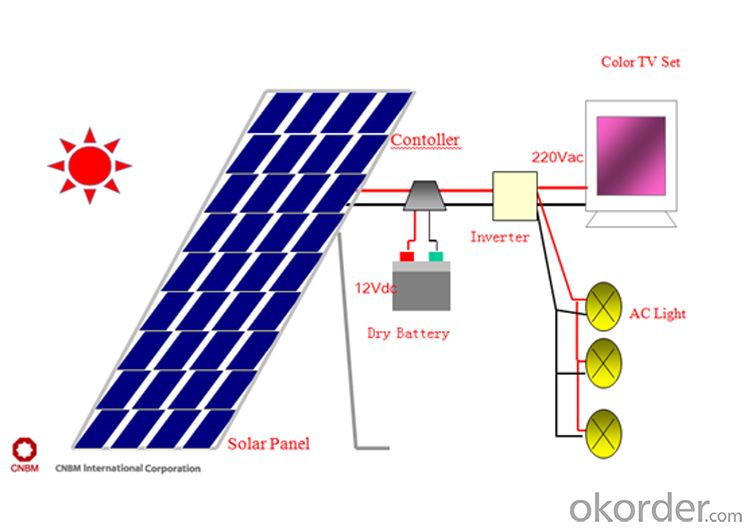
4. The Pictures of the Products
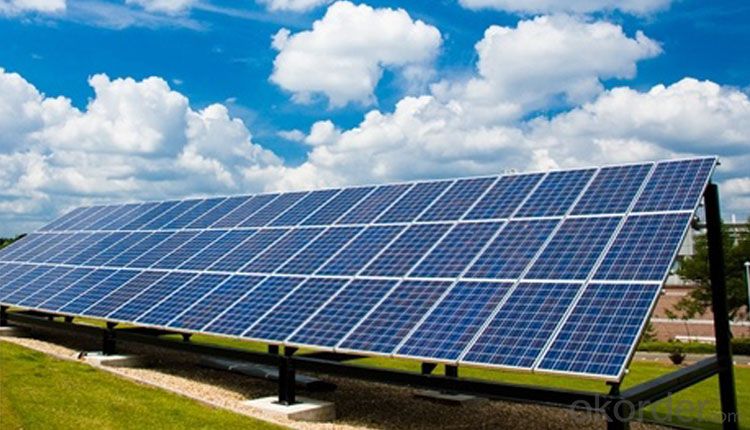
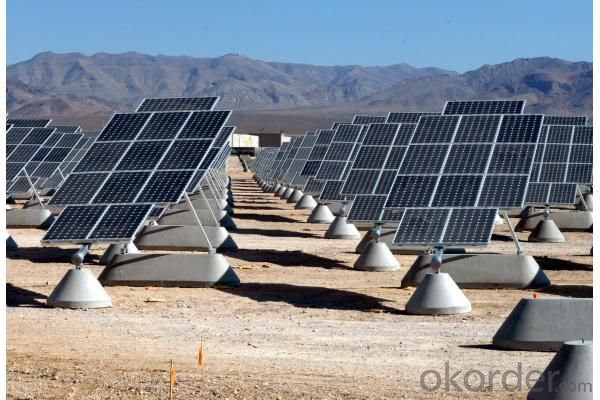
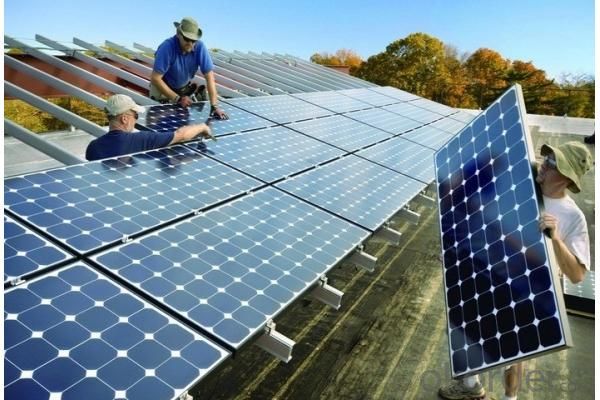
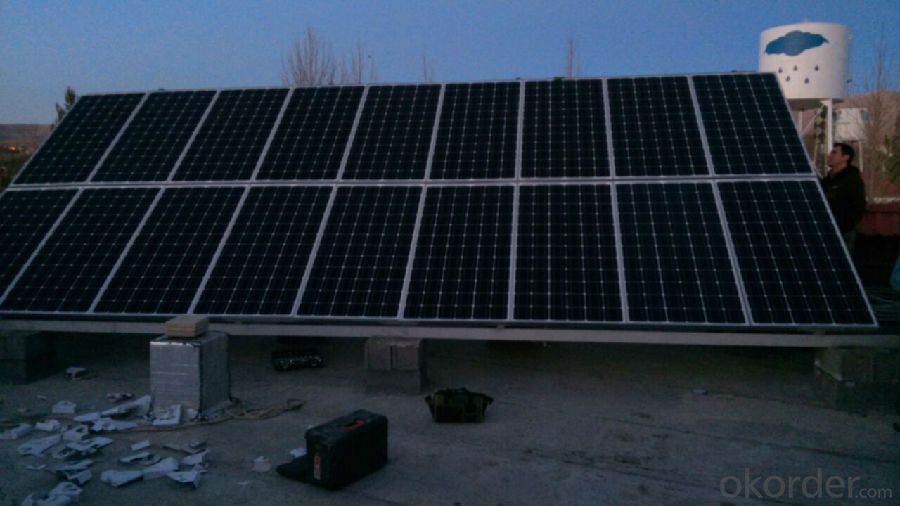
5. Packing Details
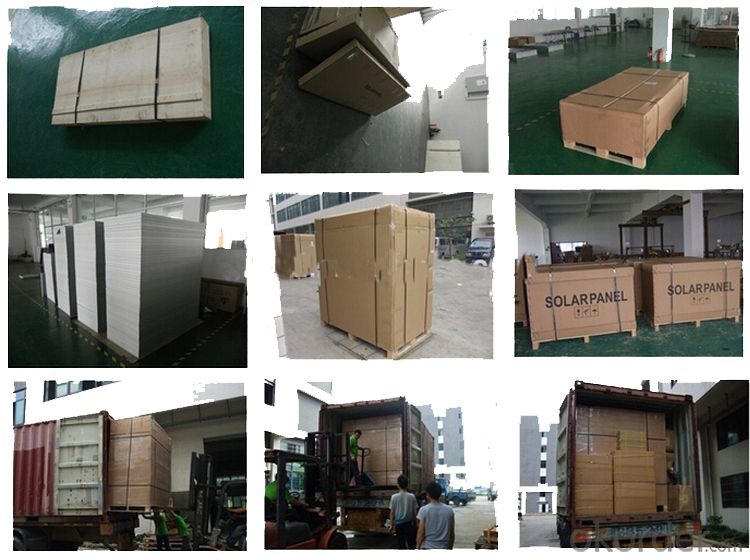
6. FAQ
1). Warranty
Our product performance guarantees for 25 years
12 years guarantee for workmanship
Timeliness of delivery
Quality Products certified (TÜV, UL, CE, ISO)
2). Can you tell me the parameter of your solar panels?
We have different series of cells with different power output, both from c-si to a-si. Please take our specification sheet for your reference.
3). How long can we receive the product after purchase?
In the purchase of product within three working days, We will arrange the factory delivery as soon as possible.
The pecific time of receiving is related to the state and position of customers.Commonly 7 to 10 working days can be served.
- Q: Can solar panels be installed on a shopping mall or retail center?
- Yes, solar panels can be installed on a shopping mall or retail center. Many commercial buildings, including shopping malls and retail centers, have ample roof space that can be utilized for solar panel installations. Installing solar panels on these buildings can help offset energy costs, reduce carbon emissions, and provide a renewable energy source. Additionally, it can also serve as a visible demonstration of the business's commitment to sustainability and environmental responsibility.
- Q: Can solar panels be installed on commercial buildings?
- Yes, solar panels can be installed on commercial buildings. In fact, many businesses and organizations are increasingly opting for solar panel installations to reduce their energy costs and environmental impact. By harnessing sunlight and converting it into electricity, solar panels provide a sustainable and renewable source of power for commercial operations.
- Q: How do solar panels impact wildlife?
- Solar panels have minimal impact on wildlife compared to other forms of energy generation. While there may be some concerns about the disruption of habitats during installation, once operational, solar panels do not emit greenhouse gases or pollutants, reducing air and water pollution that can harm wildlife. Additionally, solar panels typically occupy a small fraction of land and can be installed on rooftops or in areas with limited biodiversity, minimizing the impact on wildlife habitats.
- Q: Can solar panels be used in areas with high levels of electromagnetic radiation?
- Yes, solar panels can be used in areas with high levels of electromagnetic radiation. While electromagnetic radiation can potentially interfere with the efficient functioning of solar panels, proper shielding and design considerations can mitigate such effects. Additionally, solar panels themselves do not emit electromagnetic radiation, making them suitable for deployment in areas with high levels of such radiation.
- Q: Do solar panels require permits for installation?
- Yes, solar panels typically require permits for installation. The requirements may vary depending on the location and local regulations, but obtaining permits is generally necessary to ensure compliance with building codes, safety standards, and grid connection regulations.
- Q: Maximum size of solar panel i have to use is - 8 * 5 feet - this is the limitation given to us.
- Just buy solar panel has output rated 500 watt.
- Q: Can solar panels be used for powering wireless charging stations?
- Yes, solar panels can be used to power wireless charging stations. Solar panels convert sunlight into electricity, which can be used to charge batteries or directly power electronic devices, including wireless charging stations. This allows for clean and sustainable energy to be used for wireless charging.
- Q: China is the world's biggest producer of solar panels
- America should be making the panels and imposing large tariffs on any country trying to import theirs here.
- Q: a fiber optic network could distribute solar energy from warm states to the rest of the country. Using a Federally created program,the energy would be used through a trust program to benefit all of our citizens equally. It would create thousands of jobs and help us with our dependence on foriegn oil supplies. This is no different than work programs created by the Feds during the 930's depression era.
- Claire's argument doesn't make much sense to me either. First; Claire is talking about the second law ('you can only lose or break even'), not the third law ('you can't get to absolute zero'). Easily confused, but not that important! Putting a solar panel down _can_ increase the heat absorbed by Earth. Everything has an 'albedo' (the proportion of incoming light it reflects), and Earth's average albedo is about 0.3 (ie 30% of incoming light is reflected, most of which leaves the atmosphere straight away). By putting a 0.05 albedo solar panel down on a 0.3 albedo surface, you increase the amount of sunlight that is absorbed by Earth and therefore contribute to warming. This heat is re-radiated at the Earth's temperature, in the right wavelength range to be absorbed by greenhouse gases too. If you put a panel down on equatorial ocean, or a black roof, however, there is pretty much no effect (since the albedo change is small). Also, the heating effect only lasts as long as the panel is there. Most panels are estimated to last 50 years, meanwhile CO2 has a mean lifetime of 00+ years. I did some maths and found that the 00 year averaged change in radiative forcing for solar panels was negative compared to the UK electric grid, because the reduction in CO2 emissions has a larger effect than the change in albedo. If I have spare time tomorrow I'll redo the calculations and share them. The albedo change has to be considered though!
- Q: Can solar panels be installed on schools or educational institutions?
- Yes, solar panels can be installed on schools or educational institutions. In fact, many schools and educational institutions have embraced solar energy as a sustainable and cost-effective solution for their energy needs. Installing solar panels on rooftops or open spaces of these institutions not only helps them save on electricity bills but also promotes environmental awareness and sets a positive example for students and the community.
Send your message to us
CE and TUV Approved 200W Tile Solar Panels
- Loading Port:
- Shanghai
- Payment Terms:
- TT OR LC
- Min Order Qty:
- 10000 watt
- Supply Capability:
- 1000000 watt/month
OKorder Service Pledge
OKorder Financial Service
Similar products
Hot products
Hot Searches
